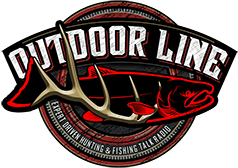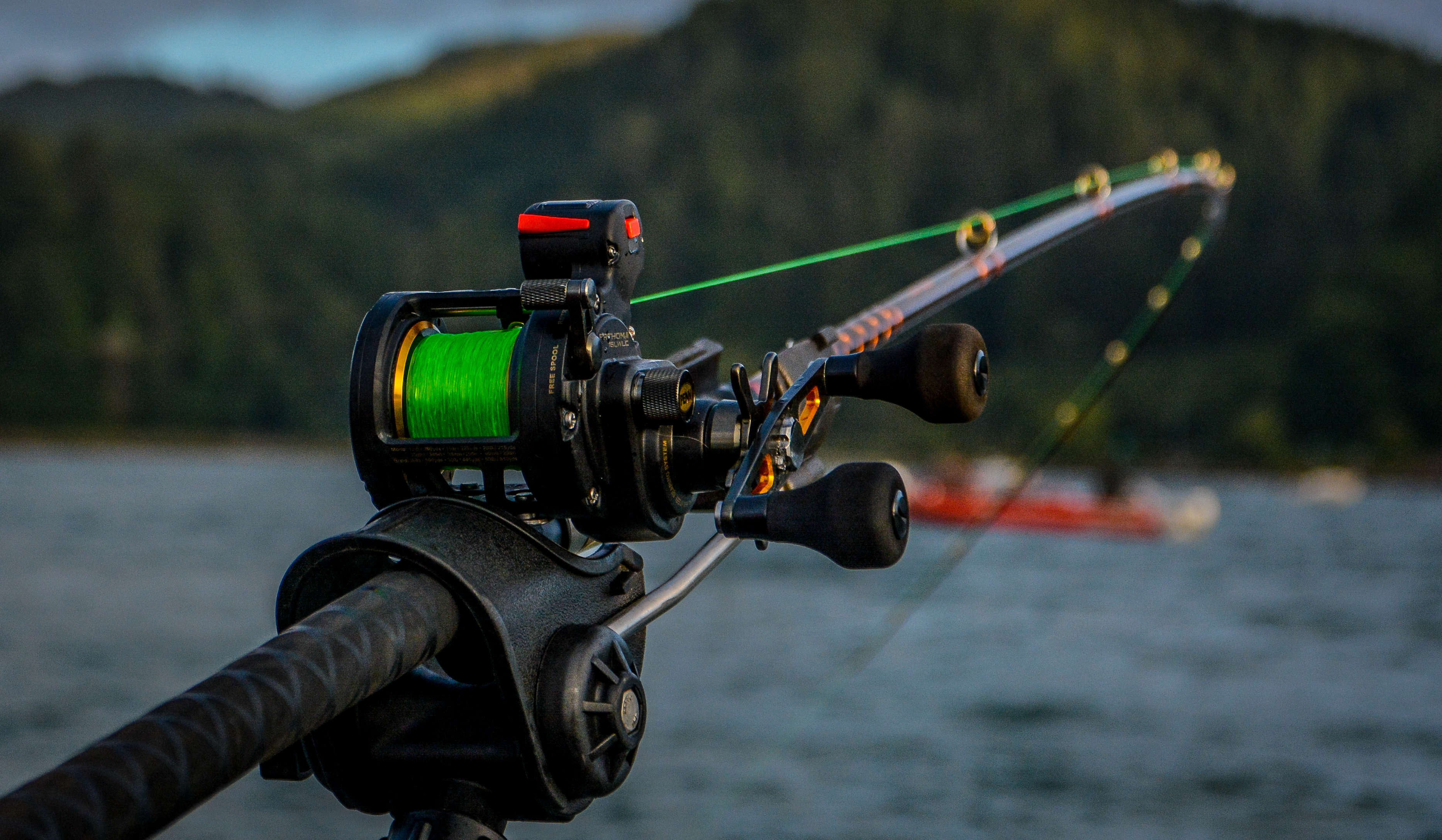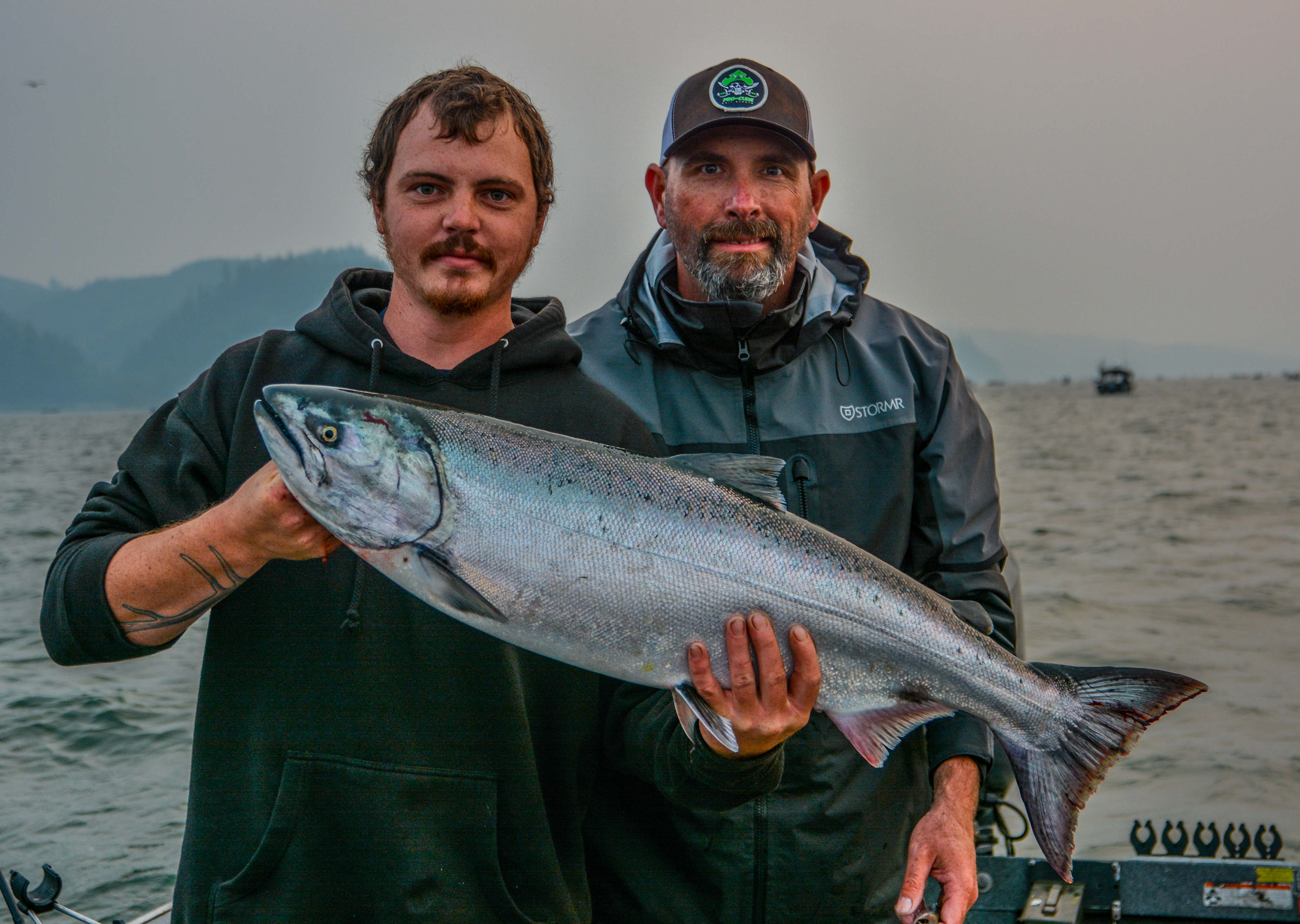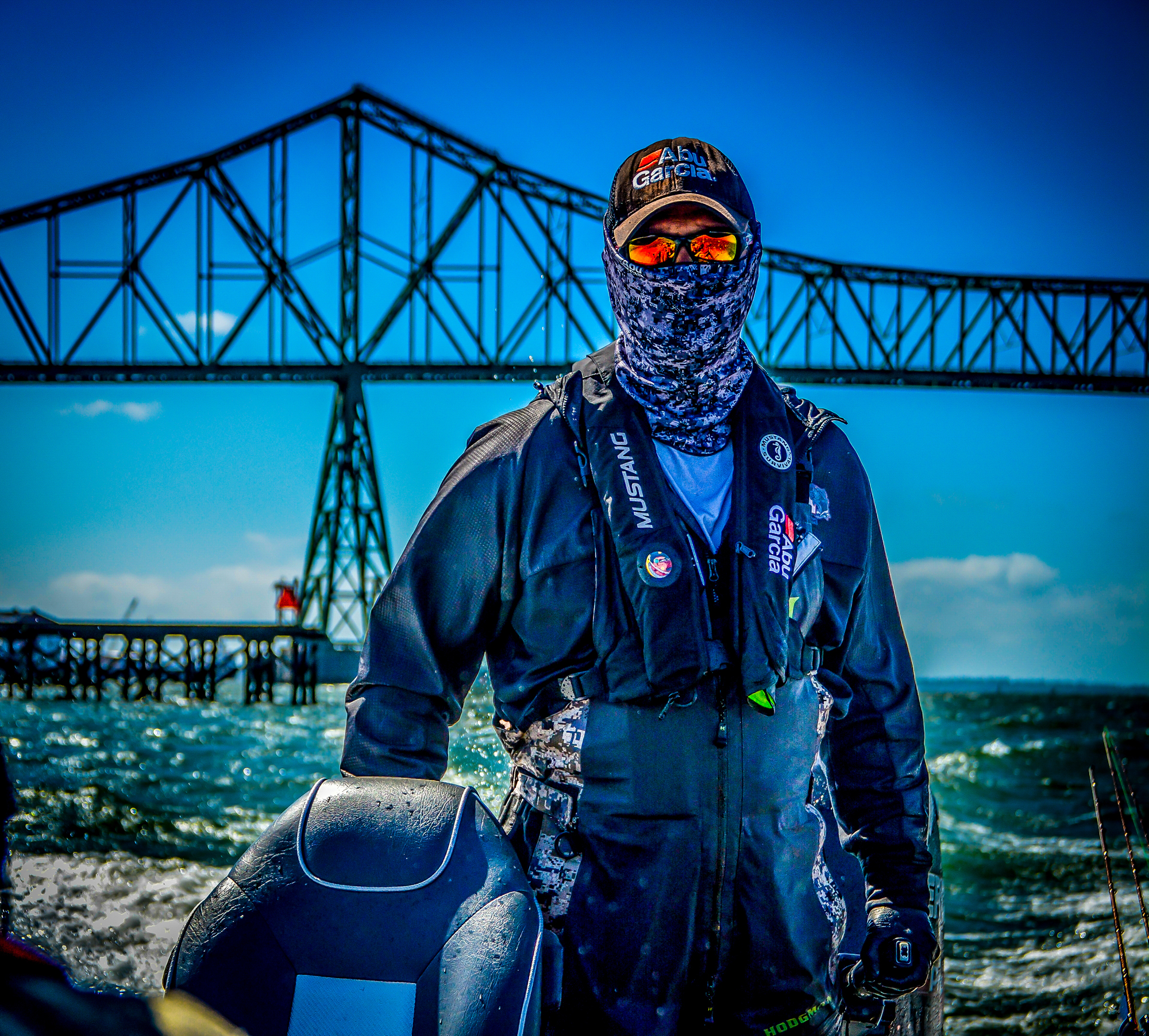Buoy 10 Re-Cap! Leave a reply
2018 Buoy 10 Re-Cap!
by Jason Brooks
The famed Buoy 10 chinook fishery just ended and what a season 2018 provided! It all started last spring during the North of Falcon season setting process. Rumors abound about limiting the days to just weekends, outlawing “in-line” flashers, a “one and done” fishery, and in the end it was a one per day limit, release wild Coho, but no new gear restrictions.
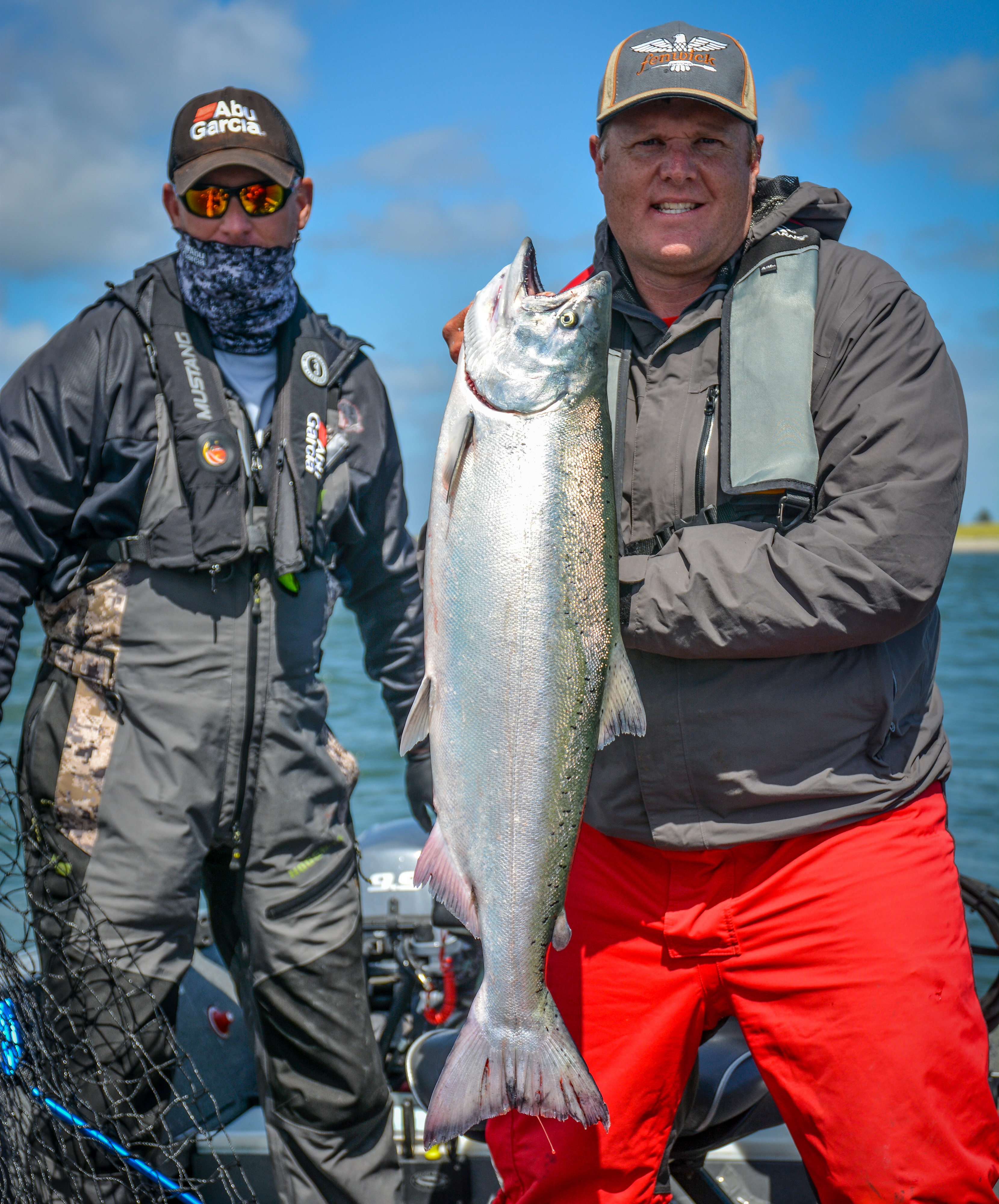
The author and guide Bryan Bell with a nice Upriver Bright caught during the NSIA Buoy 10 Challenge-Jason Brooks
The early season setting process brought on a few different opinions about gear and those “in-line” flashers. An editorial in Salmon & Steelhead Journal’s summer issue along with Social Media discussion’s led to debates over the flashers as well as how far our Fish and Game agencies go to control a fishery. In the end the flasher’s proved why they were considered to be outlawed as during my several days fishing Buoy 10 this year I didn’t see a single boat or rod without an “in-line” flasher of some sort.
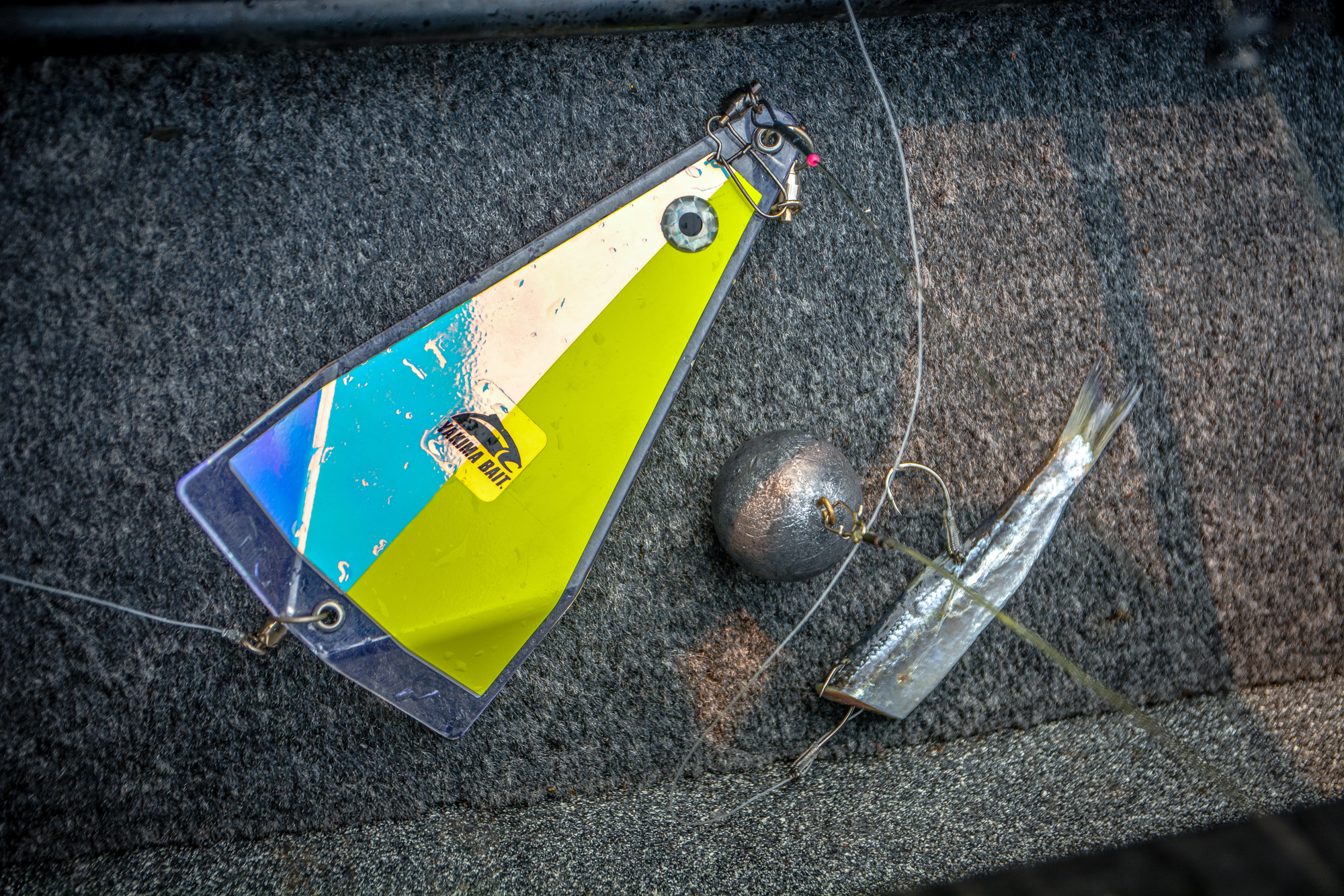
A Big Al’s Fish Flash from Yakima Bait Company along with a cut plug herring and 20 ounce dropper weight is the “go to” set up at Buoy 10-Jason Brooks
Bait ruled this year. Mostly cut-plug herring with anchovies sporting silver hoods also being popular. Spinners are normally a “go to” when the tides bring in big flushes of fish that stick around after the flood but this year it was about using bait. This August most of the fish were caught on fresh baits brined with Pro-Cure Brine-N-Bite Complete..
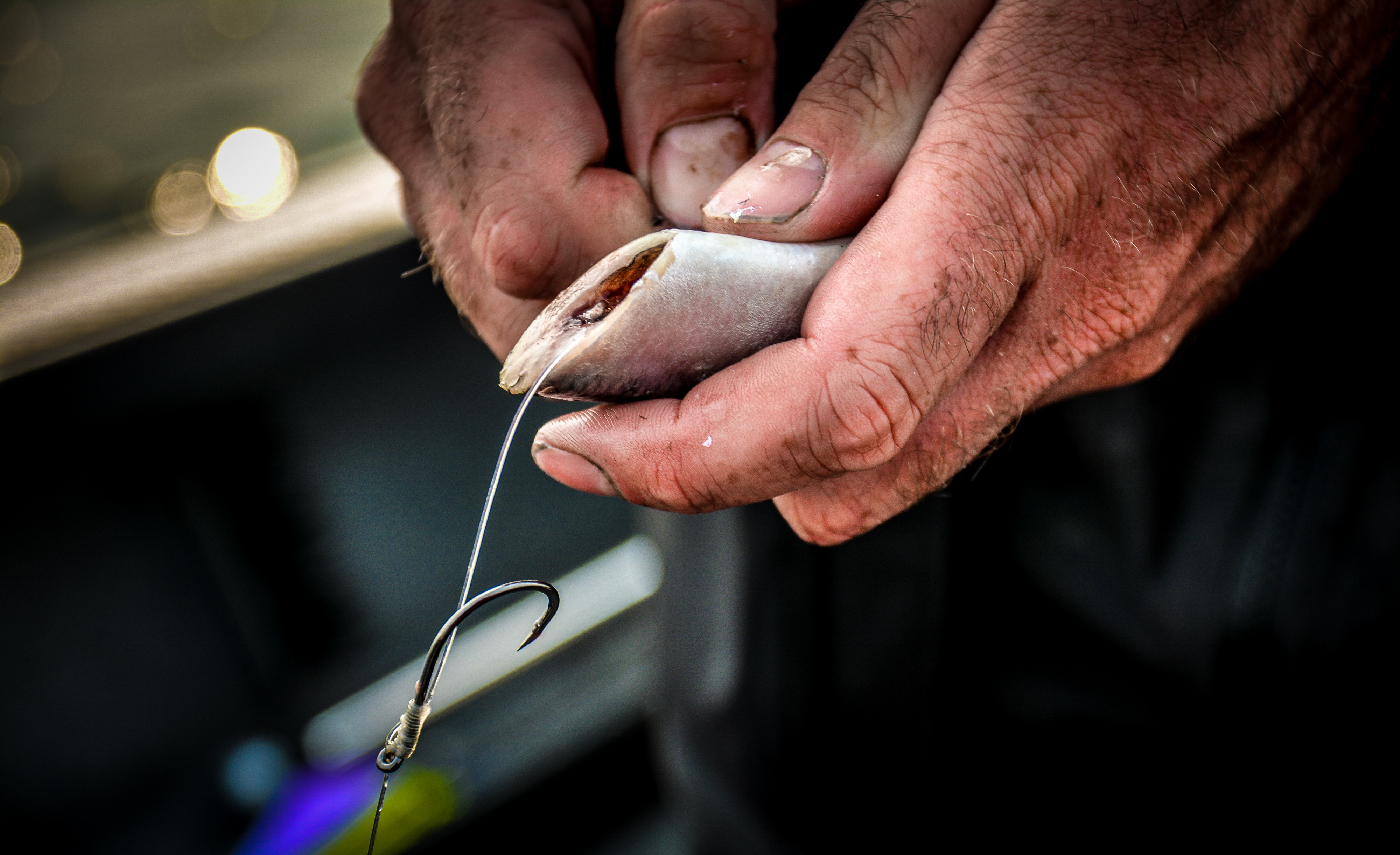
Good bait brined in Pro-Cure’s “Brine-N-Bite Complete” rigged right will lead to fish at Buoy 10-Jason Brooks
The herring didn’t need to be dried out to the consistency of fish jerky as the tide swings in the morning and throughout the last week allowed for baits to be plump and fresh. Single point Gamakatsu 3/0 hooks snelled on twenty-five-pound clear monofilament secured in a plug cut herring trailing behind a Big Al’s Fish Flash in yellow/silver or pink/silver with a 20-ounce dropper weight was the prominent set-up. Stout 9’6” or 11’3” Fenwick HMX rods paired with the new Penn Fathom II completed the outfit.
Tides mean fish. Buoy 10 gives the angler a chance to intercept thousands of Chinook and Coho as they enter the Columbia river from the open Pacific Ocean. Each tide brings in new fish, but you must keep in mind that as the tide changes to the outgoing the fish will follow it back to the salt. It might take two or three tide changes before the school of fish makes it far enough up river to stay and migrate.
Other pods of fish stay low and continue to feed on the many baitfish; herring, anchovies and even sandlace near the ocean. It is when you found a group of feeding salmon that the frenzy began. Hours of trolling with nothing to show and then a bite, and another, and soon a double hook-up. This is Buoy 10 and some days it’s slow, other days you find yourself back at the boat ramp and done before the sun hits the water.
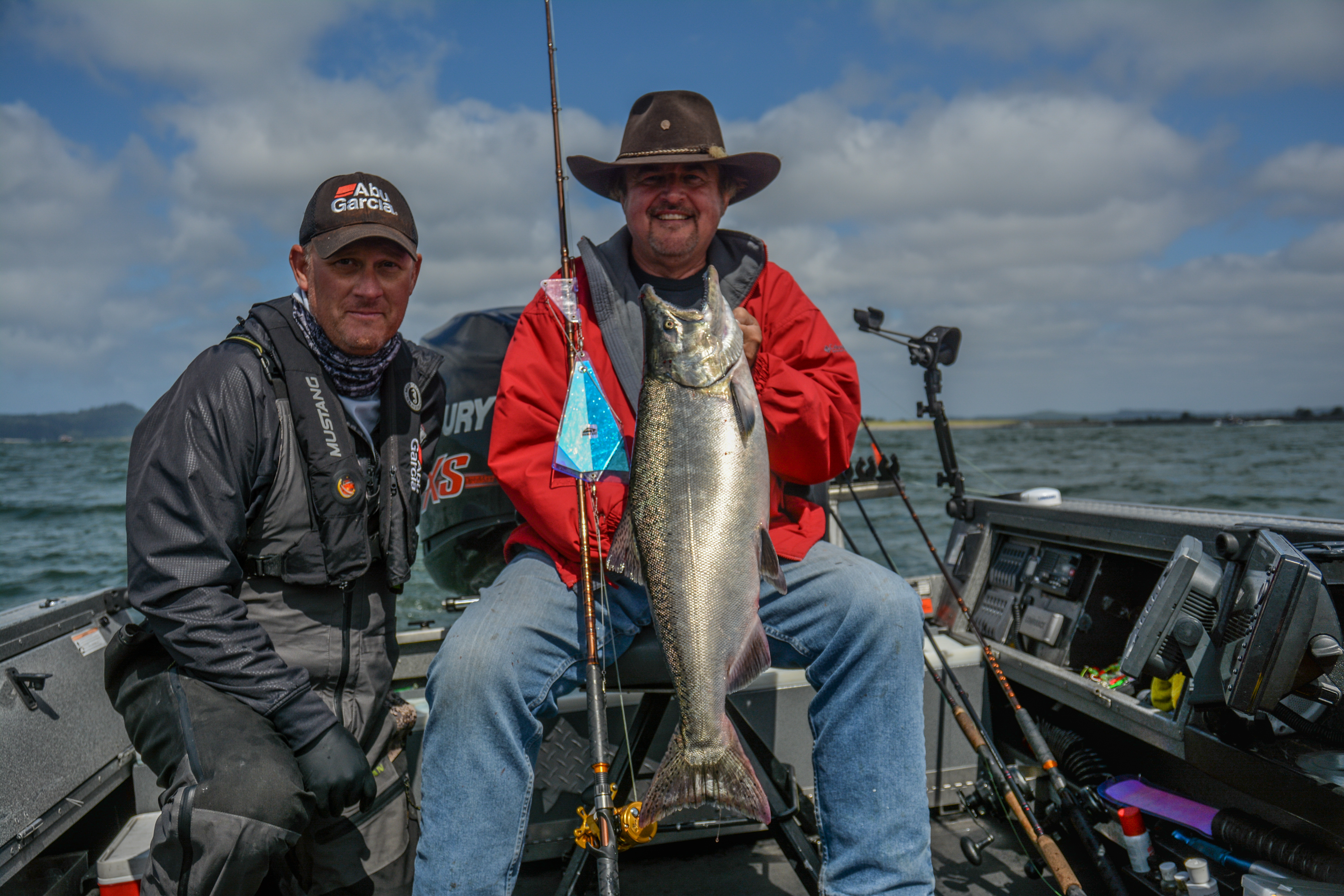
Buzz Ramsey and Bryan Bell with a Chinook that couldn’t resist the flash from a Big Al’s Fish Flash-Jason Brooks
2018 was a year of up’s and down’s, like the tide change, each day the fishing was different. Some days the fish hugged the Washington side and other days found schools of fish under the Astoria bridge in the shipping lane or rounding Tongue Point.
Some boats hit fish early, others did the “grind” to get limits and some even didn’t touch a fish. Buoy 10 isn’t a guarantee but it is a fishery that is legendary. I am already looking forward to next August and the famed Columbia River Buoy 10.
Jason Brooks
The Outdoor Line Field Editor
